Marcel Proust Quotes
Most popular Marcel Proust Quotes

Things don't change, but by and by our wishes change.

Kindness is difficult to give away because it keeps coming back.

We are healed of a suffering only by experiencing it to the full.

It is often hard to bear the tears that we ourselves have caused.

We are healed from suffering only by experiencing it to the full.

The fixity of a habit is generally in direct proportion to its absurdity.

Desire makes everything blossom; possession makes everything wither and fade.

Time, which changes people, does not alter the image we have retained of them.

All our final decisions are made in a state of mind that is not going to last.
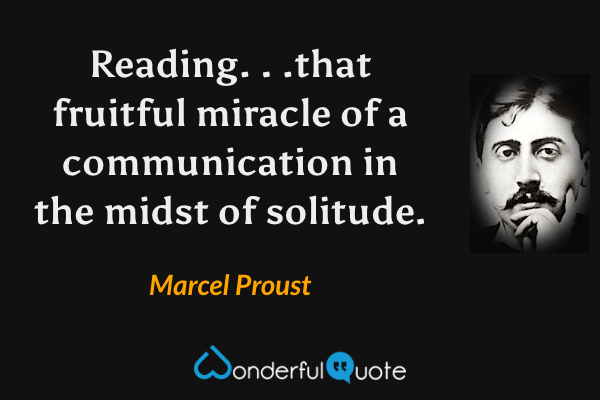
Reading. . .that fruitful miracle of a communication in the midst of solitude.

People wish to learn to swim and at the same time to keep one foot on the ground.

Sometimes illumination comes to our rescue at the very moment when all seems lost.

The features of our face are hardly more than gestures which have become permanent.

The real voyage of discovery lies not in finding new lands, but in seeing with new eyes.
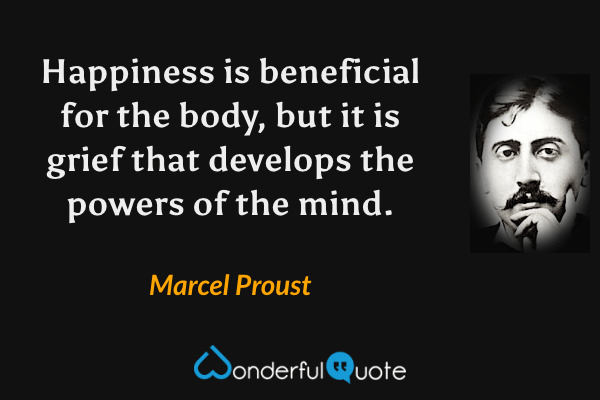
Happiness is beneficial for the body, but it is grief that develops the powers of the mind.

The real voyage of discovery consists not in seeking new landscapes but in having new eyes.
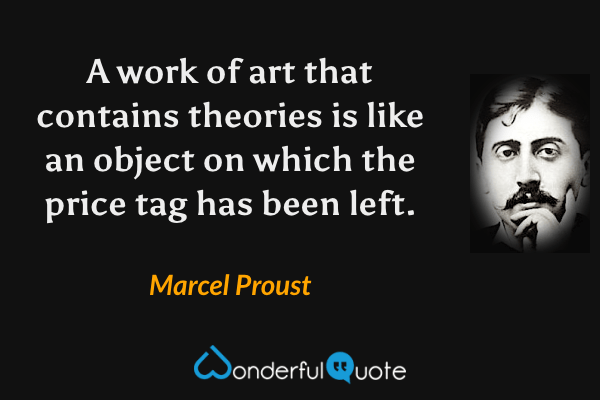
A work of art that contains theories is like an object on which the price tag has been left.

We do not succeed in changing things according to our desire, but gradually our desire changes.

The only real voyage of discovery consists not in seeking new landscapes but in having new eyes.
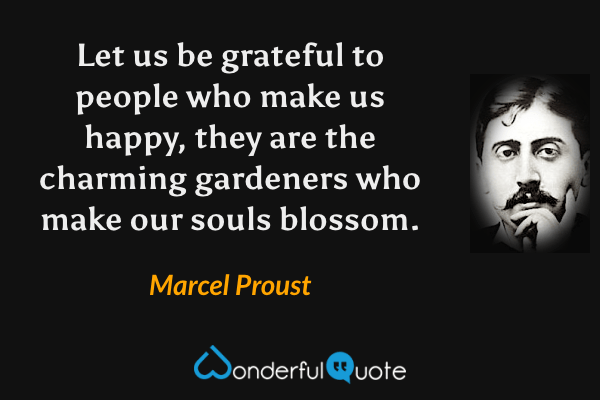
Let us be grateful to people who make us happy, they are the charming gardeners who make our souls blossom.

Neurosis has an absolute genius for malingering. There is no illness which it cannot counterfeit perfectly.

Illness is the doctor to whom we pay most heed; to kindness, to knowledge, we make promises only; pain we obey.

If a little dreaming is dangerous, the cure for it is not to dream less but to dream more, to dream all the time.

Everything great in the world comes from neurotics. They alone have founded our religions and composed our masterpieces.

That which we have not been forced to decipher, to clarify by our own personal effort, that which was made clear before, is not ours.

There can be no peace of mind in love, since the advantage one has secured is never anything but a fresh starting-point for further desires.
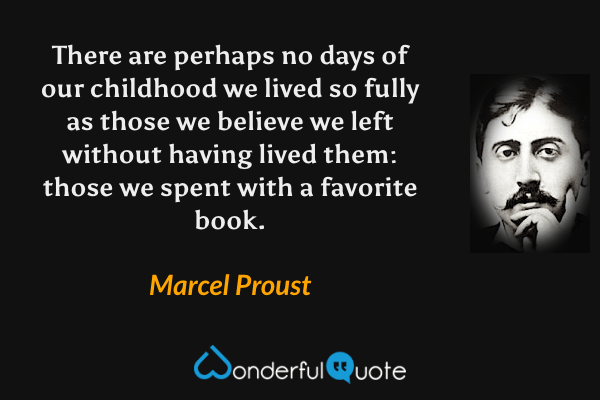
There are perhaps no days of our childhood we lived so fully as those we believe we left without having lived them: those we spent with a favorite book.

The time which we have at our disposal every day is elastic; the passions that we feel it, those that we inspire contract it; and habit fills up what remains.

Like everybody who is not in love, they imagined that one chose the person whom one loved after endless deliberations and on the strength of various qualities and advantages.
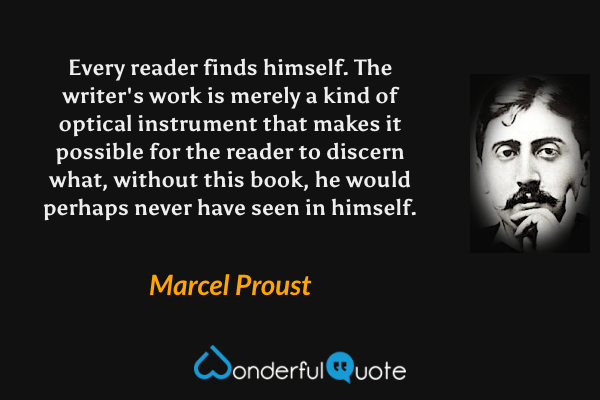
Every reader finds himself. The writer's work is merely a kind of optical instrument that makes it possible for the reader to discern what, without this book, he would perhaps never have seen in himself.

There is no man, however wise, who has not at some period of his youth said things, or lived in a way the consciousness of which is so unpleasant to him in later life that he would gladly, if he could, expunge it from his memory.
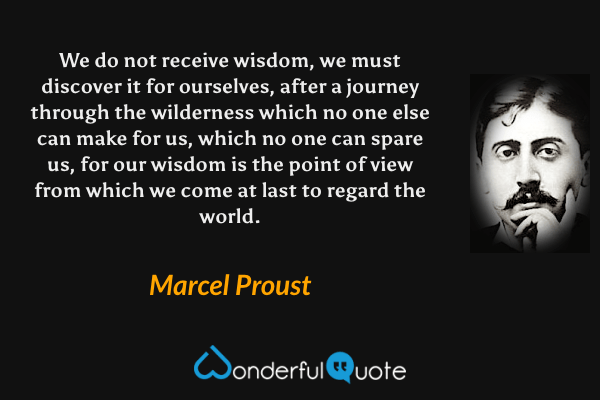
We do not receive wisdom, we must discover it for ourselves, after a journey through the wilderness which no one else can make for us, which no one can spare us, for our wisdom is the point of view from which we come at last to regard the world.

The only real voyage of discovery, the only Fountain of Youth, consists not in seeking new landscapes but in having new eyes, in seeing the universe with the eyes of another, of a hundred others, in seeing the hundred universes that each of them sees.
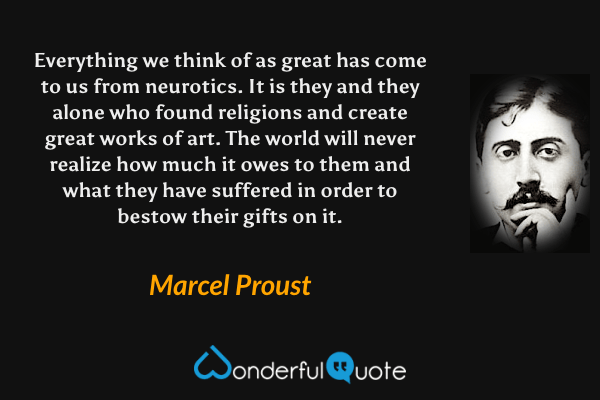
Everything we think of as great has come to us from neurotics. It is they and they alone who found religions and create great works of art. The world will never realize how much it owes to them and what they have suffered in order to bestow their gifts on it.

Our intellect is not the most subtle, the most powerful, the most appropriate, instrument for revealing the truth. It is life that, little by little, example by example, permits us to see that what is most important to our heart, or to our mind, is learned not by reasoning but through other agencies.
Let us be grateful to people who make us happy; they are the charming gardeners who make our souls blossom.
Everything we think of as great has come to us from neurotics. It is they and they alone who found religions and create great works of art.


